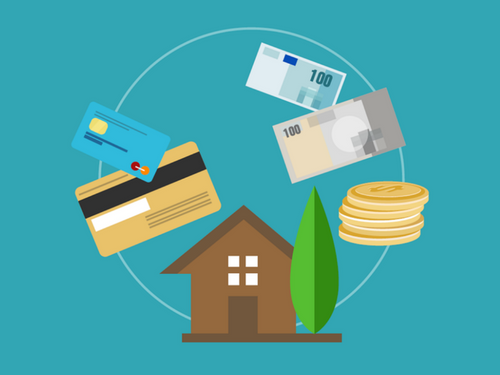Categories
How to control debt so it doesn’t control you

The money people owe, in comparison to the money they earn has almost tripled in Australia over the last two decades, with average household debt currently sitting at around $245,000[1].
Looking at credit card debt alone, the average card holder owes around $4,300 and is paying about $700 in interest annually. That’s more than $32 billion worth of credit card debt and over $5 billion in interest owed nationwide.
The difference between good debt and bad debt
Not all debt is created equal. In fact, certain types of debt can actually be good to have. For instance, debt can be good when it is used to invest in an asset, such as property or shares, which can generate income and grow in value. An example of a bad debt might be a car loan, or borrowing money to pay for an overseas holiday or other expensive items.
If you’re wondering which way the population sways, more than 90% of Australian household debt is currently being put toward building wealth and buying a home to live in.
How to face debt head on and pay off what you owe faster
Whether it's a credit card, personal loan, student tuition, car finance or home loan you’re paying off, there are many ways you can pay off your debts sooner.
1. Work out your debts and what they total
Making a list of how much you owe and to whom, including fees and interest, will help you figure out the total amount owing. It might sound scary, but it’s important to be realistic and honest about exactly how much you have to pay back.
2. Do a comparison of what you earn, owe and spend
Write down or enter into a spreadsheet what money is coming in and what money is going out. This can help you figure out whether you have any room for movement. You may be able to extract a little bit of money here and there to add to your repayments.
3. Consider rolling your debts into one
Multiple debts can mean multiple fees and interest charges. Consolidating debts can minimise this, although make sure you find the right debt consolidation solution for you. And, if you’re consolidating credit cards that you actually get rid of those other cards.
4. Pay your debts on time to avoid additional charges
Setting up alerts or paying by direct debit can help ensure your bills are paid on time so you can avoid paying late fees and interest charges. Remember, late payments can impact your credit rating and future borrowing potential.
5. Try to pay the full amount rather than the minimum owing
When dealing with credit or store card debts, it might be tempting to only pay the minimum amount, but it's important to remember that you’re still incurring interest on the balance that’s leftover. Paying the full amount typically means you won’t be charged any interest at all.
6. Look at whether you can afford to make extra repayments
Making extra repayments can help you pay off what you owe faster, and you’ll also be paying less interest. Depending on what you owe, this could mean thousands of dollars in savings. Always look at the conditions though - some lenders might charge you for paying off the loan early.
7. Shop around for providers with lower interest rates and no annual fee
Higher interest rates and added fees can really impact what you pay back on top of the principle amount. So if you’ve got an old loan or card that you just can’t seem to get rid of, see if another provider can offer you a better deal.
Getting on top of your debts isn’t always a quick fix, but the good news is putting aside a little time today can make all the difference tomorrow.
If you require assistance with financial planning, budgeting and/or lending, contact Paris Financial 03 8393 1000, and speak to one of our experts.
Source: AMP
[1] AMP.NATSEM 38 – Buy now, pay later: Household debt in Australia
